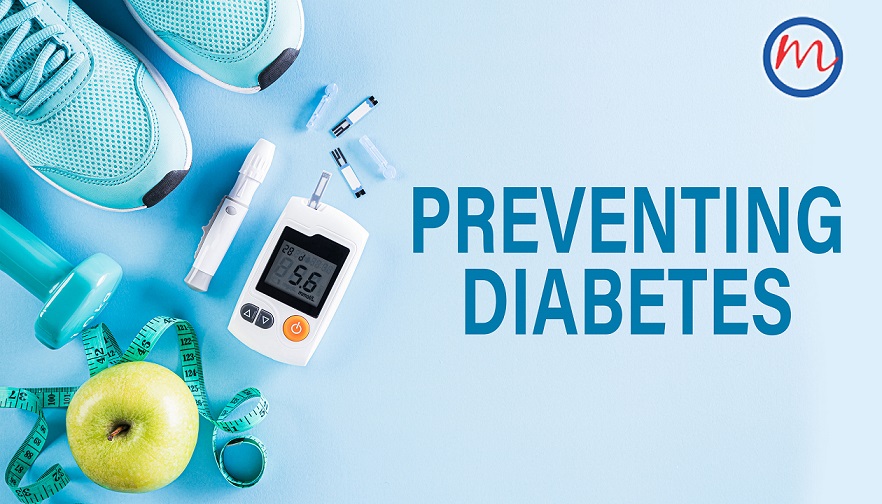Yes, type 2 diabetes can be prevented with thoughtful lifestyle changes and plant-rich diets
While there is not much you can do to prevent type 1 diabetes, for type 2 diabetes the mantra is clear: stay lean, stay active. Most cases of type 2 diabetes can be prevented, or delayed, by keeping weight under control, exercising more, eating a healthy diet and not smoking. Research increasingly shows the beneficial impact of plant-rich diets on diabetes. If you already have diabetes, your aim should always be towards achieving a healthy weight, getting regular exercise and eating a balanced diet, to improve blood glucose control. For guidance, you must consult your doctor—the best resource for managing your type of diabetes.
Watch your weight
What seems to put Indians most at risk of diabetes is the expanding girth of the nation. About 20 per cent of Indian adults are overweight, up from about 9 per cent in the 1990s. In fact, excess weight is believed to be the single most important cause of type 2 diabetes. The more fatty tissue you have, the more resistant your cells are to insulin. New research has found that being overweight ups your chances of getting type 2 diabetes seven-folds. And being obese makes you 20–40 times more likely to develop diabetes than someone with a healthy weight. On the contrary, losing 7-10 per cent of your current weight can cut your chances of developing type 2 diabetes by half.
Move, move and move
We rarely understand what a killer inactivity is. The saying goes that sitting is the new smoking! The more you work your muscles, the more your ability to use insulin and absorb glucose goes up. This puts less stress on your insulin-making cells. You don’t necessarily need long, sweaty workouts to reap benefits. Walking briskly for half-hour every day can bring down your risk of developing type 2 diabetes. Brisk walking of more than five hours per week has been found to be an excellent way to maintain a steady blood sugar level and body weight. This has a variety of other benefits as well.
The worst modern habit seems to be long hours of television-watching. The more television we watch, the more likely we are to be overweight or obese. There is also the unhealthy impact of diet patterns associated with TV watching. It has been found to be especially detrimental for diabetes: every two hours of TV time increases the chances of developing diabetes by about 20 per cent; it also increases the risk of heart disease (15%) and early death (13%), shows new research.
Eat healthy foods
Diet is the key to prevention. For type 2 diabetes, dietary changes can have a big impact. Follow some simple rules:
Eat less. Cut down on portion size—that is, the amount of food you eat. If you are trying to eat smaller portions, start with the amount of white rice you consume. Latest research by Dr V. Mohan and a group of international collaborators shows Indians and South Asians eat white rice the most and that is now being linked to the epidemic of diabetes raging across the country. A good way to control portion size is by drinking a large glass of water 10 minutes before your meal, so you feel less hungry.
Choose whole grains. It is not clear why, but whole grains seem to reduce the risk of diabetes and help maintain blood sugar levels. So go for whole grains over refined grains and other highly processed carbohydrates. Try to make at least half your grains whole grains (for example, brown rice instead of white rice). Many foods made from whole grains come ready-to-eat, including various breads, pasta products and cereals.
Get plenty of fibre. Foods high in fibre include fruits, vegetables, beans, whole grains and nuts. Fibre is believed to help you reduce your risk of diabetes by improving your blood sugar control, lowering your risk of heart disease, promoting weight loss by helping you feel full.
Skip sugary drinks and choose water, coffee, or tea instead. Cut back on high-fat foods like whole milk, cheeses, and fried foods. Choosing more healthy fats, like nuts, seeds and vegetable oils, while limiting animal fats and refined carbohydrates, can help prevent or control type 2 diabetes, new article suggests. Avoid red meat and processed meat, go for nuts, beans, whole grains, poultry, or fish instead.
A lot of fad diets hog the news space every now and then. But their effectiveness in preventing diabetes and their long-term effects are not really known (Read, Dr Mohan’s research on Ketogenic Diet here). It is best to just make healthier choices, bring in variety and portion control part of your healthy-eating plan.
Stop smoking now
You know that smoking is bad for your health. It’s not just the lungs, smoking has a negative effect on every organ of your body. And it raises your risk of potentially fatal diseases: heart disease to chronic obstructive pulmonary disease (COPD) and many types of cancer. Add type 2 diabetes to that list. We now know that smoking doesn’t just cause type 2 diabetes, smokers are roughly 50 per cent more likely to develop type 2 diabetes than nonsmokers. And heavy smokers have an even higher risk.
Smoking makes your body more resistant to insulin, raising blood sugar levels. People with diabetes who smoke are more likely than nonsmokers to have trouble with controlling their disease, even with medication. Uncontrolled blood sugar can lead to serious complications with your kidneys, heart, and blood vessels. Smoking, in particular, damages the cardiovascular system. This can become lethal for people with diabetes.
Go for plant-based diets
Plant-based diets are eating patterns that highlight legumes, whole grains, vegetables, fruits, nuts, and seeds while discouraging most or all animal products. New research suggests that the more plant foods you eat, the lower your risk of type 2 diabetes. Not just, they have been associated with much lower rates of obesity, hypertension, hyperlipidemia, cardiovascular mortality, and cancer, too.
Plant-based diets are high in fibre, antioxidants, and magnesium, all of which have been shown to promote insulin sensitivity; antioxidants, such as polyphenols, stimulate insulin secretion; fibre, found only in plant foods, has been associated with increased satiety, weight loss, and insulin resistance. Plant-based diets also tend to be low in saturated fat, again associated with insulin resistance. A plant-based diet has been shown to reduce abdominal fat (the greatest risk factor for diabetes). Plants are a rich source of phytonutrients, compounds with beneficial properties that work towards anti-inflammation, cancer prevention, vision enhancement, circulatory system health, and more.
A few items to have in your diet on a regular basis:
Yoghurt: great for preventing and lowering type 2 diabetes, thanks to the probiotics in it. The efficacy of probiotics in diabetes has been proven: they have the ability to lower fasting glucose and insulin levels.
Fruits: people with blood sugar problems can (and should) eat fruits. Berries (especially Kala Jamun and amla) and a range of citrus fruits lower blood sugar.
Legumes: lentils, split peas, kidney beans and black beans are treasure troves of protein, folate, fibre, resistant starches, vitamins, minerals and disease-fighting phytonutrients. They have been shown to ameliorate insulin resistance and protect against metabolic syndrome.
Nuts: have a number of health-boosting phytonutrients. Add them to salads, vegetable dishes or have them as a snack (a 1/4-cup serving).
Seeds: Rich sources of protein, fibre and anti-oxidants.
Coffee and tea are good for you. Both have important phytonutrients. Just skip spoonfuls of sugar and milk. And, remember, moderation is the key.



